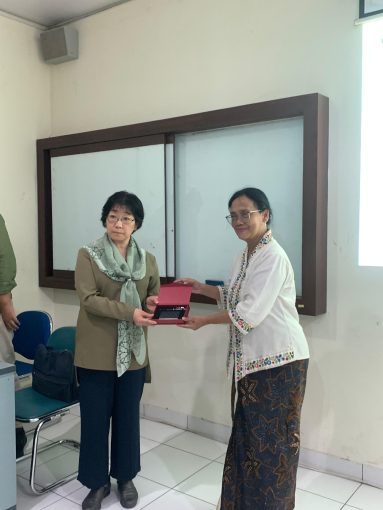
Yogyakarta, September 17, 2025 – The Javanese Language, Literature, and Culture Study Program, Faculty of Cultural Sciences, Universitas Gadjah Mada, held a public lecture titled “Historiography of Indonesian Islam.” The event featured Yumi Sugahara, a scholar from Osaka University, as a visiting lecturer to discuss cross-national perspectives in writing the history of Indonesian Islam.
In her presentation, Sugahara emphasized that historiography is not merely “a record of events,” but also reflects cultural perspectives in constructing historical narratives. She highlighted the differences between Japanese and Indonesian historians, particularly in relation to the intersections of Islam, culture, and national history.
Several significant scholarly works were referenced in her lecture, including M.C. Ricklefs’ A History of Modern Indonesia since c.1200 (4th edition, Macmillan Education UK, 2008), regarded as one of the most authoritative references in modern Indonesian historiography, and Anthony Reid’s Southeast Asia in the Age of Commerce, 1450–1680 (Yale University), which explores the early modern period of maritime Southeast Asia.
The question-and-answer session unfolded dynamically, with discussions ranging from how Japanese and Indonesian societies differently perceive the relationship between religion and national history, to the contrasting perspectives of Japanese, Western, and Indonesian historians in interpreting Islamicate culture in the archipelago.
This public lecture offered fresh insights for students and academics on cross-cultural approaches to the historiography of Indonesian Islam while also strengthening international academic networks.
The event aligns with the Sustainable Development Goals (SDGs), particularly SDG 4 (Quality Education) by fostering historical literacy and critical understanding, as well as SDG 17 (Partnerships for the Goals) through academic collaboration across nations.
[Public Relations Office, FIB UGM – Alma Syahwalani]

